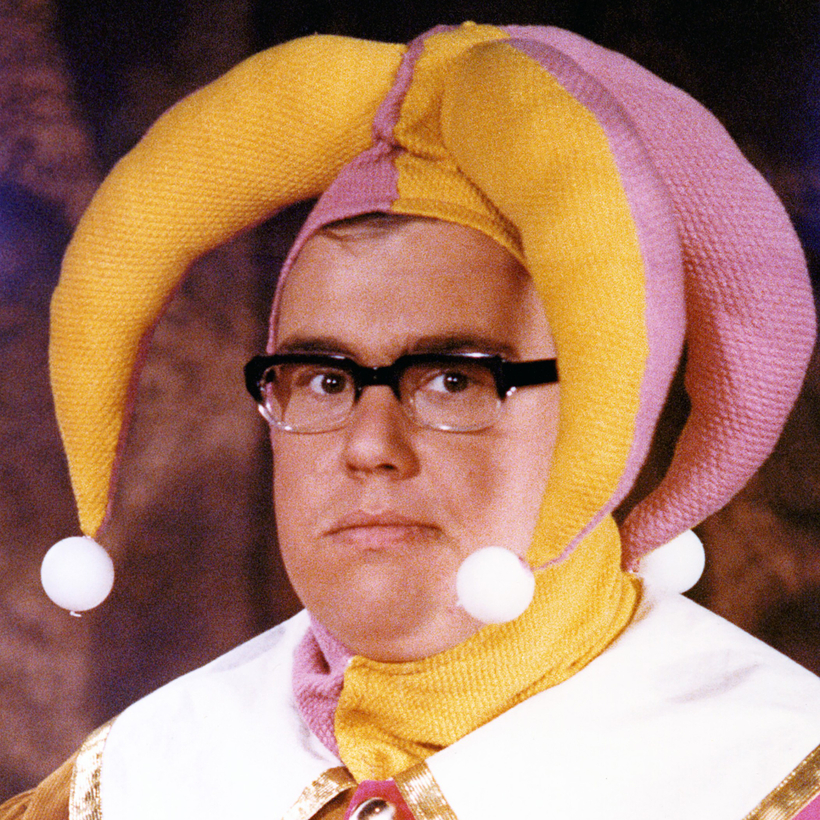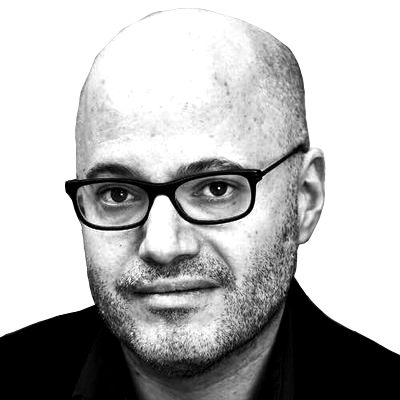In 1987, when I was 14, my father took me to see a performance at Toronto’s Second City called Not Based on Anything, by Stephen King. Being in these hallowed halls—where Gilda and Aykroyd and Marty Short rocked their youth—was a huge deal to me. I had read everything about Saturday Night Live and all that fed into it. I was a comedy nerd. Mike Myers was in the cast of Second City, and I, just a kid, was sure he’d be a star. I asked him if Lorne Michaels had seen him yet. “Not yet” was the answer.
This could have been an opening move for me as a writer on comedy, but I arrived too soon. In 1987, there were music critics and film critics, but there was not a Pauline Kael of comedy. That was a job that did not exist, not yet. Music, books, theater, film—these are the genres that merited attention in the culture. It has been speculated that part of Aristotle’s Poetics was lost. The part that survived is on tragedy. The part that did not was on comedy.

Now comedy is a bigger business than my 14-year-old self could have imagined. It is bigger than movies or music, both diminished by streaming. Back in the day, you put in your time at Catch a Rising Star or Caroline’s just to get five minutes on Carson. If things went spectacularly well, you could get a comedy special, a sitcom, broad caricatures on S.N.L., and maybe an embarrassing movie or two.
The stakes have been raised. The comedians now have cultural power. They are, oddly, the ones being taken seriously. Many believe that the already razor-thin 2000 election was palpably influenced by the debate sketches with Will Ferrell’s Bush and Darrell Hammond’s Gore, and that Tina Fey’s Palin was better than Palin’s Palin.
And yet, as comedy gains prestige, the behavior of comedians has been getting more scrutiny, ever since 2017 became year zero, when many entertainers had to check in with H.R. At one time, the onanism quirks of a major comedian were not a career killer, because comics were assumed to be lowlifes with jokes, not artists. In the mid-60s, Lenny Bruce got arrested, repeatedly, just for cursing in public. Things got cooler later, right? Kind of.

But until recently, artists were not expected to be Boy Scouts. Comedians, the good ones, are all about crossing the line and creating new ones. There is a place where people love to be offended, and it is called social media. And yet comedy is everywhere, and now there is a writer on comedy, the kind that didn’t exist until Jesse David Fox was hired at Vulture.
He is the author of Comedy Book, the result of what happens when everyone thinks comedy is important, even as fewer things can be funny. (Lots of this rolls off. Don’t people love Larry David because he could care less?) Fox was there when John Mulaney gave his first post-rehab performance and has seen Chris Rock bomb more than once. He even got to talk to Fran Lebowitz and ask her what accounted for the comedy boom since 1990. Her answer? “The lowering of standards.”
Fox dates the comedy boom to around 1990, after Seinfeld’s first season. Back then, a comedian had never headlined Madison Square Garden. At the time of publication, that number had gone up to 18, and it continues to rise. By 2014, President Obama knew that the best way to sell Obamacare to young people was to appear on Zach Galifianakis’s Between Two Ferns. “What’s it like being the last Black president?” asked Galifianakis. “Healthcare.gov received a 40 percent boost in traffic, almost entirely from people who had never visited the site before,” writes Fox. “Jacobin would later call this ‘The Day Zach Galifianakis Saved Obamacare.’”

What does it mean that politicians need comedians to sell their policies? When a majority of young people—one in five 18- to 29-year-olds, according to a 2004 survey taken at the peak of Jon Stewart’s influence, likely more today—are getting the news from comedians, the actual anchors recede into the distance, and a racist game-show host can rise to power calling all of the factual and damning reporting about him “fake news.”
Nothing about Donald John Trump is funny, and yet people aspiring to comedy are still circling him, capturing every last incriminating malapropism, all the way to the trials and whatever comes next. Remember: Trump hosted S.N.L. twice, and the second time was when he was running for president.
There was something novel about Nixon going on Laugh-In and saying, “Sock it to me.” Now there is a daily binge of YouTube exasperation. Nero fiddles, NBC pays. We and our jokes are the manifestation of a system that is slipping away one gag at a time. Saturday Night Live premiered in 1975 as a show for the generation made cynical by Watergate. Now the Donald Trump Show is everywhere, and the newsclip-based ridicule reinforces his brand. This is the way the world ends.

We are in a comedy boom, sure, but something else exploded around the comics. After his fall, Louis CK told an audience that everyone in the room had a thing—even Obama knew his thing, he said—and they were all so lucky that he didn’t know their thing. (Obviously, his thing was something no one would want to see.)
Dave Chappelle was widely admired for speaking truth to power about George Floyd, something he did not do for laughs. Now he is being attacked for his opinions about other things, and people look to see if he nails another gazillion-dollar contract with Netflix. (Relax. He did.)
Comedians and their habits, their opinions, their messed-up masturbation requests. One false move and—Pow! Crash! Crunch!—someone else will be hosting S.N.L. and getting a streaming deal. Someone willing to behave.
Even if the world becomes a better place, it won’t be that much better. Even after the W.G.A. negotiation, this life is still a bad deal in the end. As long as we fear the inevitable, there will always be a line to cross. From whose bourn no traveler returns. Yorick, remember, was a comedian, too. And the graveyard is an evergreen. Remember: when a comedian succeeds, the comedian kills. But that can mean many things.
“Personally,” writes Fox, “I have found jokes a salve and a means of processing an at times too tragic world. It is through comedy that I have come to terms with the ‘cosmic joke,’ as the famous mystic Yogi Sadhguru puts it—death: ‘If you get the joke, falling on the other side will be wonderful.’”

David Yaffe is a professor of humanities at Syracuse University. He writes about music and is the author, most recently, of Reckless Daughter: A Portrait of Joni Mitchell. You can read his Substack here

